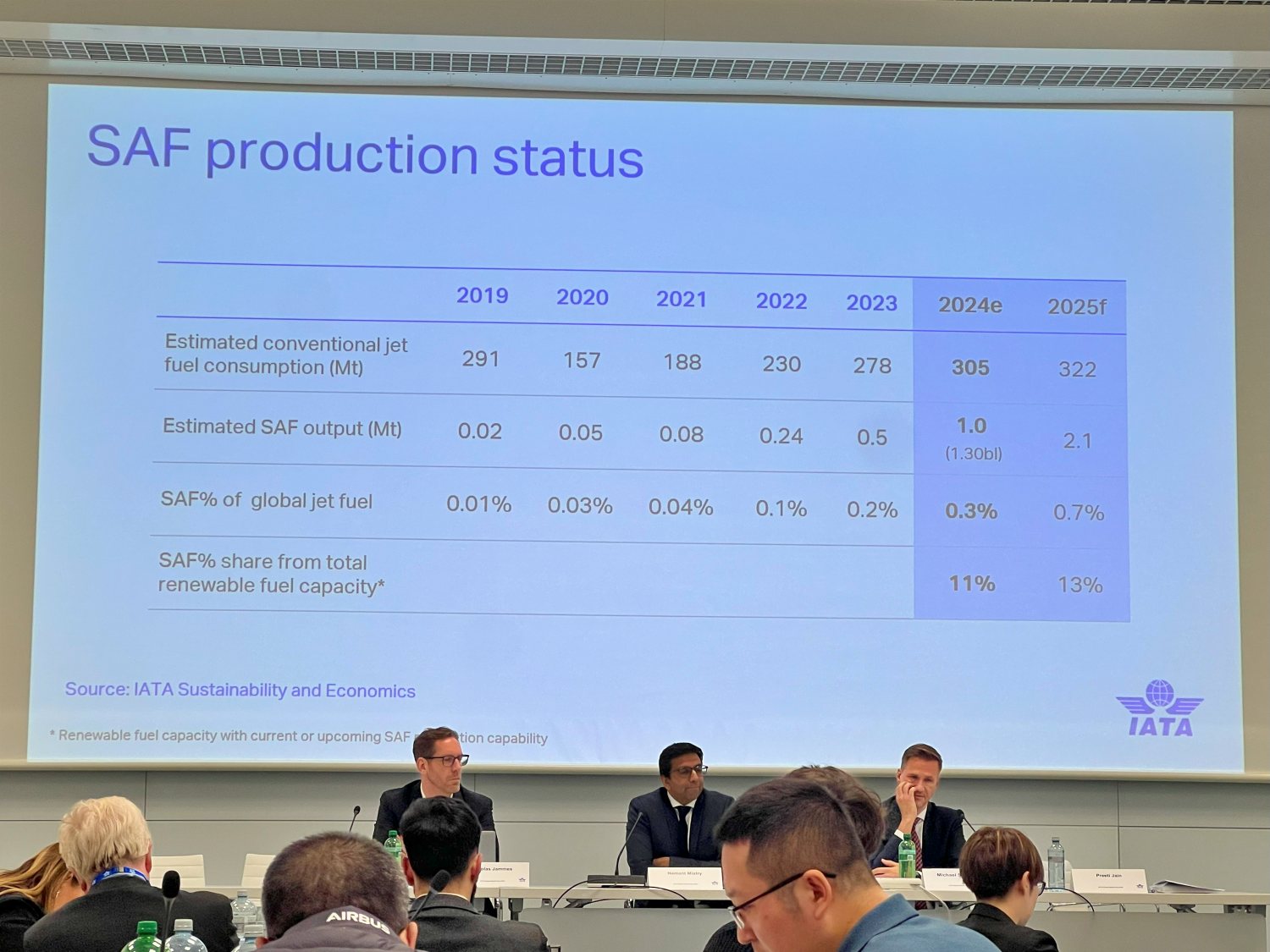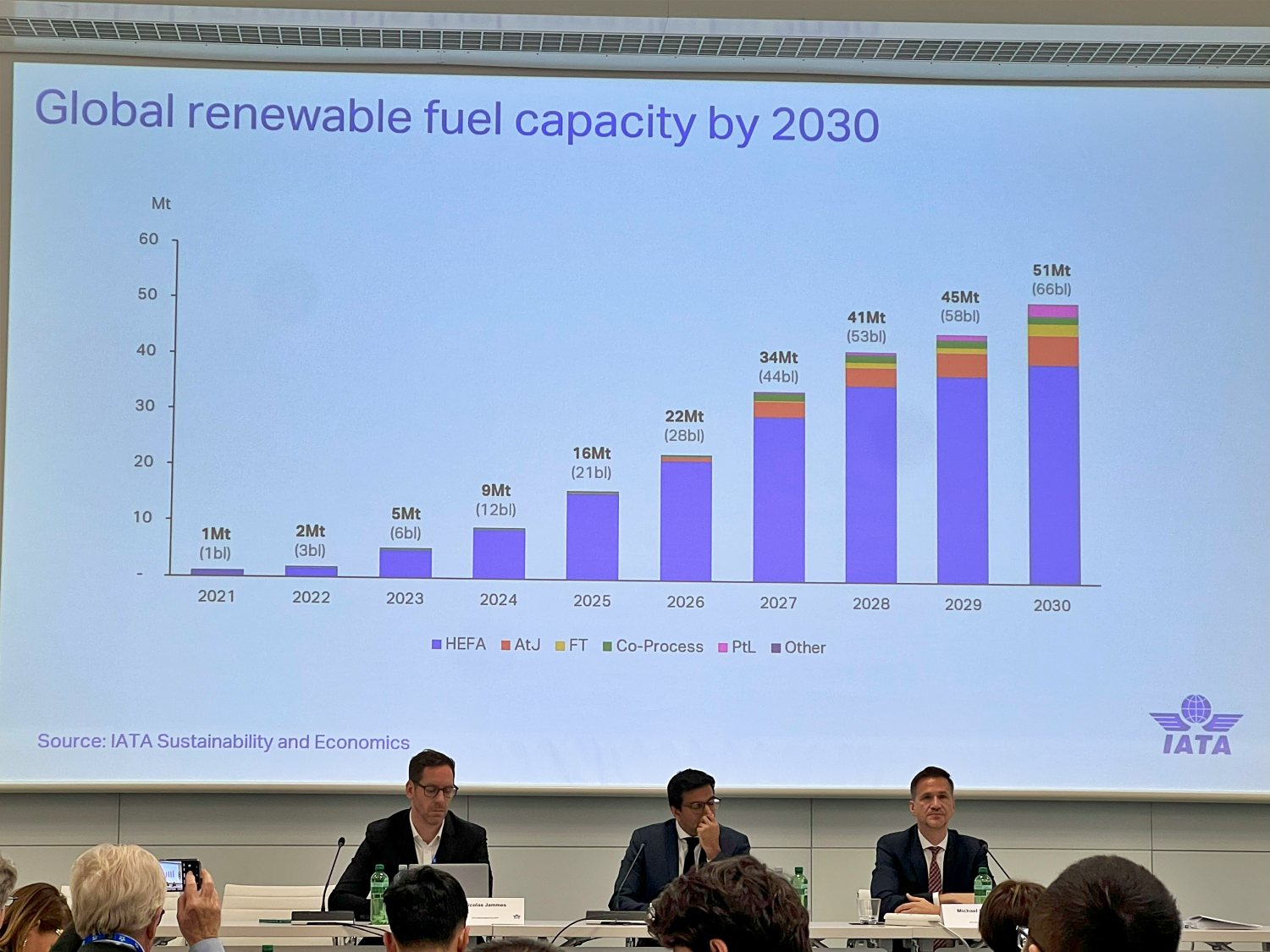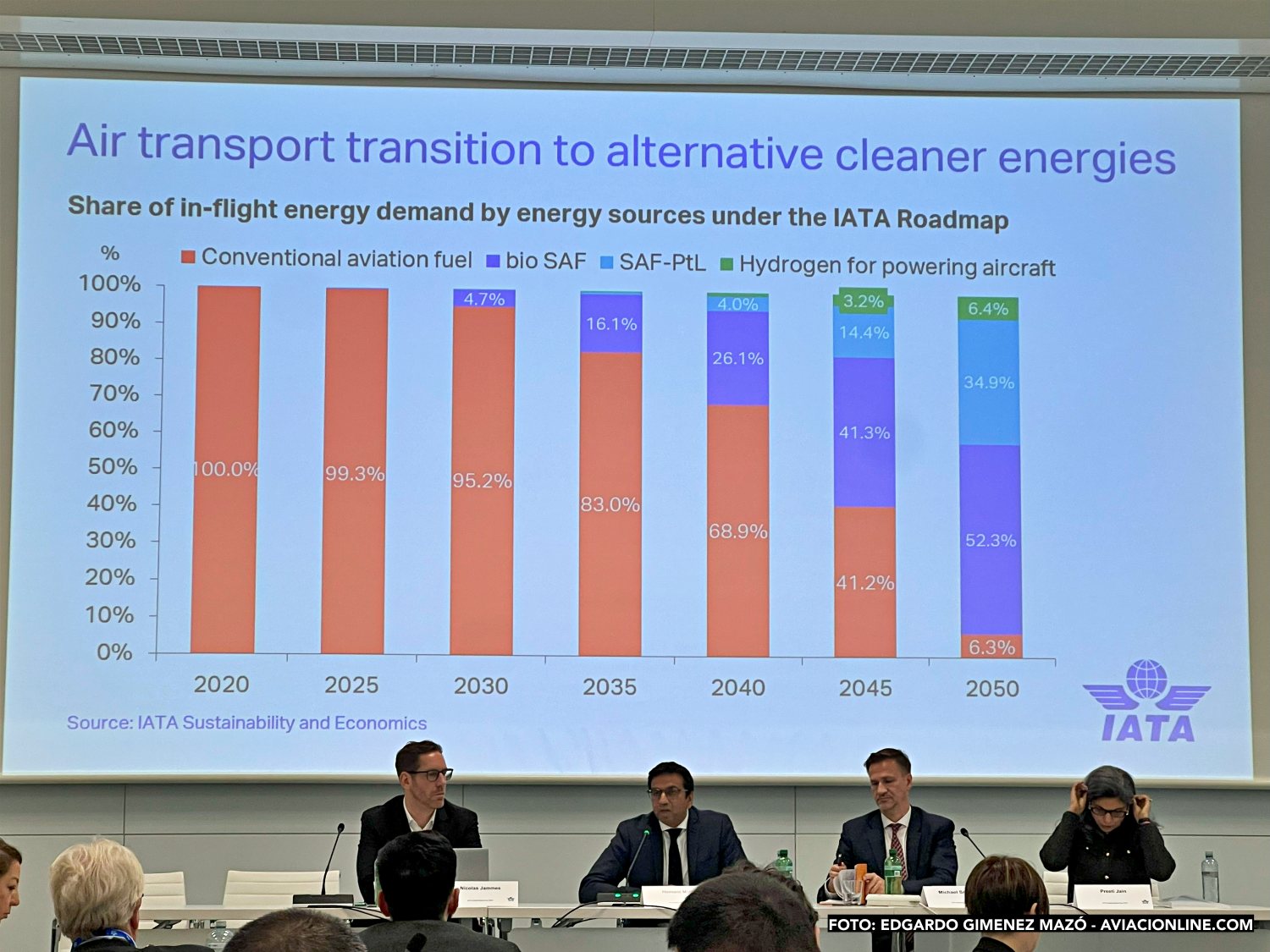SAF Production Doubles in 2024 but Still Falls Short of Aviation Industry Goals
GENEVA – The International Air Transport Association (IATA) reported that the production of Sustainable Aviation Fuels (SAF) reached 1 million tonnes (1.3 billion liters) in 2024, doubling 2023’s figures. However, this volume only represents 0.3% of the global jet fuel production and 11% of the renewable fuel capacity worldwide.
According to IATA, the growth has been slower than initially projected, as the forecasts for 2024 were set at 1.5 million tonnes. The delay in the commissioning of key facilities in the United States, postponed to 2025, was identified as one of the main factors.
By 2025, SAF production could reach 2.1 million tonnes, equivalent to 0.7% of global jet fuel production and 13% of total renewable fuel capacity.

Slow growth amid climate urgency
Willie Walsh, IATA’s Director General, described the increase in SAF production as «disappointingly slow» and partly blamed conflicting government messages to the energy industry. «Oil companies continue to receive subsidies for fossil fuel exploration and production, while renewable fuel investors seem to await guarantees of quick profits before advancing,» he stated. Walsh added that airlines are ready to purchase SAF but emphasized that governments must accelerate the transition through strategic incentives and a reassessment of current fossil energy subsidies.

Marie Owens Thomsen, IATA’s Senior Vice President of Sustainability and Chief Economist, pointed out that aviation decarbonization should be integrated as part of the global energy transition and not seen as a problem exclusive to the transport sector. «Solving the challenges of the energy transition in aviation will also benefit other sectors of the economy. Refineries will produce a wide range of renewable fuels, and only a small fraction will be SAF for airlines,» she said.
Infrastructure and necessary measures
According to the organization, achieving net-zero CO2 emissions targets by 2050 will require the construction of 3,000 to 6,500 new renewable fuel plants. These facilities will also supply other industries with renewable diesel and other fuels. The average annual investment needed is estimated at $128 billion, less than half the resources allocated to solar and wind energy between 2004 and 2022.
Among the strategies identified by IATA to accelerate SAF expansion is increasing the use of existing refineries to process renewable feedstocks alongside crude oil, enabling faster implementation with lower investment. Additionally, it highlighted the need to diversify production methods beyond the HEFA technology, which currently accounts for 80% of production. Technologies such as Alcohol-to-Jet (AtJ) and Fischer-Tropsch (FT), which use biological and agricultural residues, could significantly boost volumes. The importance of establishing a global registry to accredit SAF purchases by airlines was also emphasized, ensuring transparency and avoiding double-counting.

According to an IATA survey, 86% of passengers believe governments should incentivize SAF production, while a similar percentage thinks oil companies should prioritize its supply to airlines.
IATA’s contribution
As part of the IATA Global Media Day held today in Geneva, Switzerland, with Aviacionline in attendance, the organization also detailed some key programs and initiatives they are leading to facilitate the development and use of sustainable aviation fuels among airlines.
These include the creation of a model contract for SAF procurement, which is now complete and available for the industry. This contract aims to standardize transactions, offering clarity and efficiency to airlines and other stakeholders interested in purchasing this type of fuel.
Additionally, IATA is conducting training programs focused on SAF procurement for member airlines. These training sessions are supported by the SAF Handbook, which includes detailed guidance on sustainability documentation. They are also aligned with other relevant manuals such as CORSIA and ReFuel EU, ensuring that procurement practices meet international standards.
Another highlighted effort is the implementation of a registration system and the “Book & Claim” mechanism for SAF, currently in the pilot phase and expected to be operational by 2025. This system will allow airlines to register and accredit their SAF use, even in cases where the fuel is not physically used at the purchase location, promoting transparency and facilitating global adoption.
IATA is also advancing SAF production acceleration programs, which are continuously under development. These programs aim to collaborate with producers, investors, and governments, encouraging the adoption of innovative technologies to diversify production sources and significantly increase available volumes.
Finally, monitoring progress toward net-zero emissions among IATA member airlines is another key ongoing initiative. This effort tracks and evaluates airlines’ advances on their sustainability paths, ensuring they meet the commitments outlined in their decarbonization strategies.

/https://aviacionlinecdn.eleco.com.ar/media/2022/12/SAF-combustible-sostenible-de-aviacion-frankfurt.jpg)
Para comentar, debés estar registradoPor favor, iniciá sesión